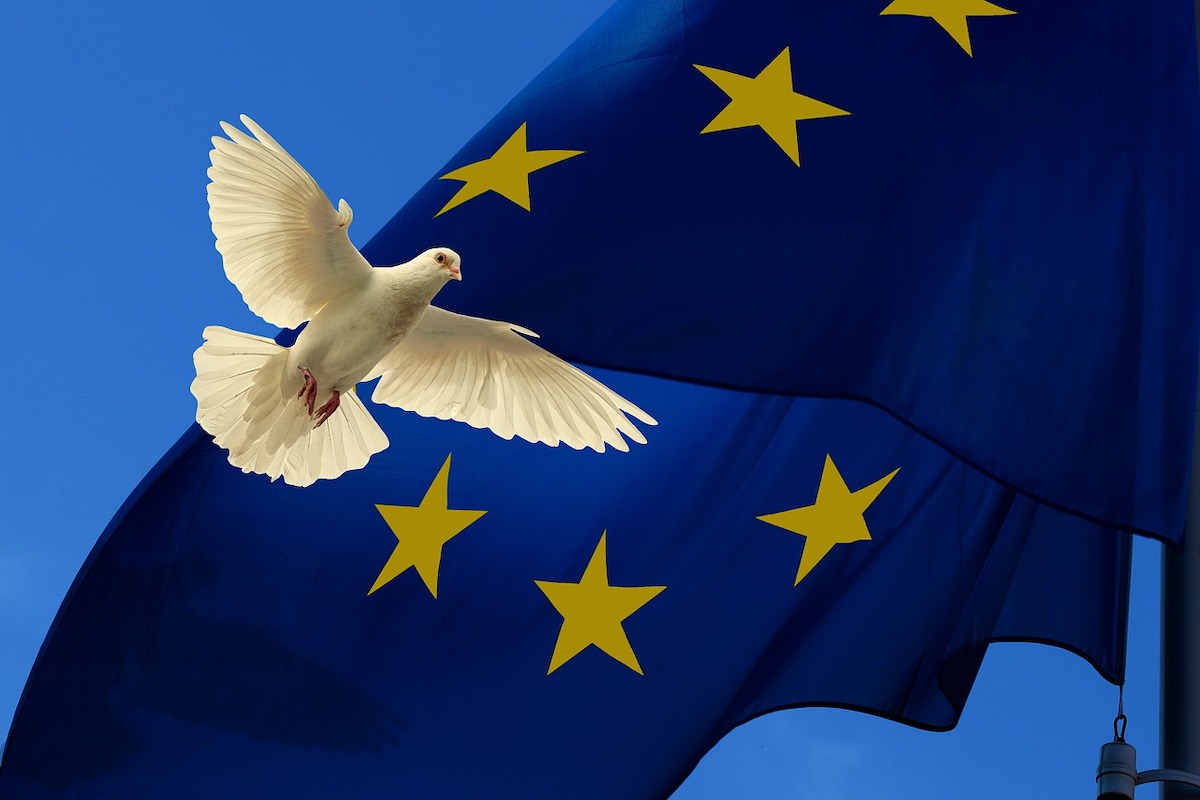Books
Modern Europe and the Enlightenment—A Review
Modern Europe and the Enlightenment opens by presenting a balanced examination and robust summary of Enlightenment values.

A review of Modern Europe and the Enlightenment by Rumy Hasan. Sussex Academic Press, 240 pages (May 2021).
In a June 2019 interview given to the Financial Times, Russian President Vladimir Putin brashly declared that the liberal idea had outlived its purpose. He supported this claim by noting that the public had rejected ostensibly “liberal” European policy stances on immigration, open borders, and multiculturalism. In his new book, Modern Europe and the Enlightenment, social scientist Rumy Hasan rigorously explores whether the aforementioned positions really are consonant with liberal democracy and the Enlightenment values that underpin it, and concludes that Putin was burning a straw man. If Hasan is correct, then the entire configuration of the political board game has been misconstrued. This makes his argument pivotal to understanding how well (or poorly) the rhetorical labels ascribed to political policies fit their substance.
Modern Europe and the Enlightenment opens by presenting a balanced examination and robust summary of Enlightenment values. Hasan diligently charts counter-Enlightenment influences in Europe, whether in the cultural relativism of soi-disant liberals, the authoritarian tendencies in Eastern Europe, or the pre-Enlightenment customs still observed and zealously defended by some immigrant groups. From there, he chronicles the extent to which Enlightenment values are adhered to in various parts of modern Europe, which he divides into Western Europe, the progenitor of the Enlightenment; former communist countries that have joined the European Union; and former communist countries that are not in the EU.
Hasan anticipates the objections of counter-Enlightenment critics by examining instances in which Enlightenment thinkers proffered unenlightened ideas and theories. The racist and sexist personal views held by some of these thinkers, he contends, were not the logical outcome of the Enlightenment—they ran contrary to the substance of its values. Rather than absolving Hume, Kant, and Jefferson of their “serious failings,” Hasan acknowledges them as such but places them in their proper context within the broad sweep of Enlightenment teaching and its key tenets: reason, evidence, and logical argumentation. Had they been applied consistently, these new tools of understanding would not have lent support to deviations of the sort that are routinely cherry-picked by the Enlightenment’s enemies. Moreover, Jefferson’s great hero John Locke firmly opposed racism and white supremacy, as did Paine, Diderot, and the abolitionists. Even Jefferson, notwithstanding his ownership of slaves, inserted clauses in the American Declaration of Independence outlawing slavery, only to see them forcibly removed by delegations from the slave-owning states and the mercantile class. A principled espousal of Enlightenment values, Hasan insists, militates strongly against white male supremacist beliefs.

Many of the Enlightenment’s critics are disciples of Horkheimer and Adorno’s 1944 counter-Enlightenment polemic, Dialectic of Enlightenment, which argued that the totalitarian horrors then engulfing Europe were the unintended consequences of Enlightenment values. But Hasan points out that this is a crude case of the post hoc ergo propter hoc fallacy, according to which chronology implies causation. In fact, Hitler and the Nazis were proponents of the most acute anti-Enlightenment thinking. Once they gained power in 1933, the Nazis immediately set about destroying Germany’s democratic structures, illustrating that democracy was not valued in principle but only instrumentally. A bedrock of reason and science are necessary—but not sufficient—conditions for the achievement of a modern state and society, and these too can be deployed in the service of ends that undermine them.
Likewise, the rapid expansion of European colonisation during the 19th century ran against the core tenets of Enlightenment thought. While colonisation brought some Enlightenment ideas to the colonies, they were invariably not enacted with respect to the colonised. How could they be when the very act of colonisation was in breach of the core Enlightenment values of self-determination and liberty? And although enlightened ideas spread across the globe after World War II, Hasan points out that post-colonial leaders have neither stressed their importance nor implemented them with any conviction. This, he writes, accounts for the minimal economic and social development in these countries. Hasan marshals plenty of empirical data in support of this view, citing an array of indices of freedoms and rights throughout his book.
Hasan focuses on the turn-of-the-century “Enlightenment bashing” that historian Darrin McMahon has described as “something of an intellectual blood-sport, uniting elements of both the Left and Right in a common cause.” A counter-Enlightenment mindset characterised by cultural and moral relativism has taken root throughout Europe—a profound error that threatens to plunge Western Europe back into the unreason, irrationality, and obscurantism that still envelops a good part of the outside world and causes great hardship to the majority of its citizens. Hasan is especially well-positioned to make this claim owing to the massive sociological research he has conducted into living conditions, human rights, and economic development around the globe, thoroughly documented in his 2017 book, Religion and Development in the Global South. Study after study has shown that secularising culture and society is not only essential to the cognitive development of children, it is also necessary for economic development and modernisation. Very high levels of religious beliefs in the Global South, on the other hand, have suppressed dynamic growth and human flourishing.
Modern Europe and the Enlightenment effectively dismantles the consensus opinion: that policies supporting mass immigration and a generous asylum policy are best described as “liberal,” while those opposed to such policies are best understood as unenlightened populist reactionaries. The primacy of reason (and the freedom to exercise it) lies at the heart of Enlightenment thought. It unshackles individuals from community values, groupthink, customs, and traditions and it is therefore a necessary condition of self-determination. The primacy and liberty of the individual—the sine qua non of liberal political philosophy—is in fact jeopardised by the conservative communitarianism that multiculturalism prioritises.
Following the Second World War, Western Europe committed itself to liberal democracy and to constitutions and laws that embedded universal human rights. This consensus was concretised in the UN’s 1948 Universal Declaration of Human Rights (UDHR) as well as in the European Convention on Human Rights (ECHR) which came into force in September 1953. Central to the latter were freedom of expression (Article 10) and the prohibition of discrimination—the principle that innate characteristics or accidents of birth must not be the subject of prejudicial acts. A unified commitment to common values and principles was reiterated in the 1973 Declaration on European Identity. These values and principles are markedly different, says Hasan, to what has occurred under the auspices of multiculturalism.
After supra-national initiatives led to the 1994 launch of the European Commission against Racism and Intolerance, the new body produced a series of General Policy Recommendations (GPRs) addressed to the governments of all member states and intended to combat racism, xenophobia, anti-Semitism, and intolerance. From there, the GPRs multiplied—on Roma (1998), Muslims (2000), racism in schooling (2004), sport (2008), employment (2012), combatting hate speech (2015), and “irregularly present migrants” (2016). Conscientious attempts to comply with all of this legislative guidance has led to overt racism being tackled with increasing vigour and confined to the margins in the European Union. Open declarations of white superiority are now taboo, and Western Europe has become one of the most popular destinations as millions travel from the Global South to settle there.

However, multiculturalism prioritised a kind of diversity completely at odds with “common values and principles,” and which rejected the idea of a “common European civilisation.” While the codified rights and protections afforded to women and sexual minorities in Western Europe in the 21st century are without historical parallel, these achievements mask profound differences that stem from cultural and religious mores and norms within religious-ethnic groups. Attitudes and practices that are not acceptable in the host society are tolerated and protected within migrant communities—a blatant double standard justified with recourse to the twin ideological positions encompassed within multiculturalism: cultural and moral relativism.
Contrary to protecting the rights of minorities, this stance has stripped minority ethnic individuals of equal protection under the law by supplanting individuals’ rights with “community rights,” a policy that accommodates deeply illiberal values in the name of liberal tolerance. Consequently, we are left with a paradox: the arrival of large numbers of migrants, mainly from Muslim-majority countries with intolerant and regressive views on fundamental issues including women’s, children’s, and LGBT rights, freedom of expression, and secularism was enabled by political leaders of parties and governments that pretend to espouse these rights and values.
It is extremely refreshing to find contentious cultural issues frankly discussed by a social scientist who treats his subject with forensic precision. Hasan delivers pleasant and unpleasant facts in equal measure—but the evidence is given the loudest voice and Hasan is disciplined in compiling and arranging it. His fascinating new book is a masterpiece of academic style, and should be taught to beginner university students as a paradigm of lucid prose.






